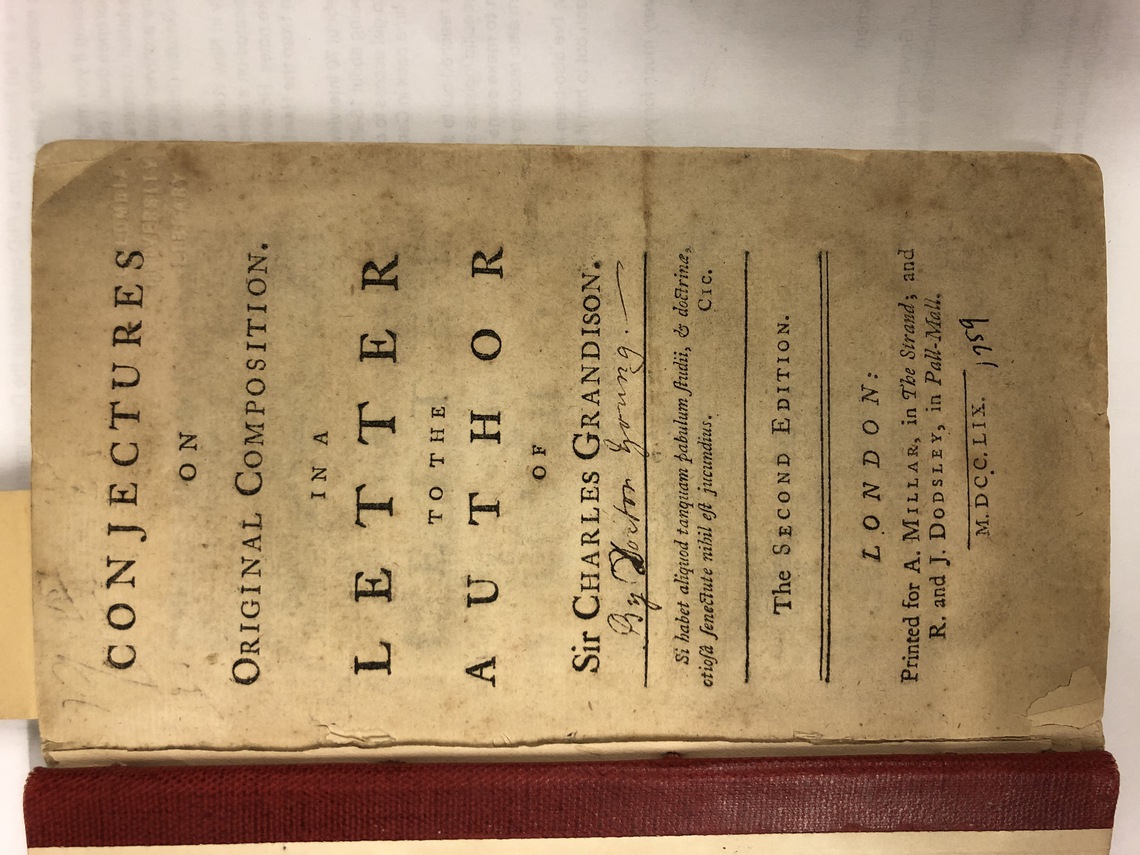Conjectures on Original Composition
-
Eighteenth-century poet Edward Young, best known for his poem “Night Thoughts,” published Conjectures on Original Composition at the encouragement of his friend Samuel Richardson. Championing the public benefit of every original composition to “extend the Republic of Letters,” Young adamantly held that even second-rate new compositions should be applauded over excellent imitations: better “to share ambition with no less than Cæsar, who declared he had rather be the First in a Village, than the Second at Rome.” Genius, according to Young, could not be learned, imitated, or practiced, but arose through “invisible” forces.
“[…] for what, for the most part, mean we by genius, but the power of accomplishing great things without the means generally reputed necessary to that end? A genius differs from a good understanding, as a magician a good architect; that raises his structure by means invisible; this by the skilful use of common tools. Hence genius has ever been supposed to partake of something divine.”
Introduction
- Label
- Conjectures on Original Composition
- Author
- Edward Young
- Original Publication Date
- 1759
- New Publication Date
- 1759
- Publisher
- A. Miller and R. and J. Dodsley
- Location
- RBML
- Case
- 1
